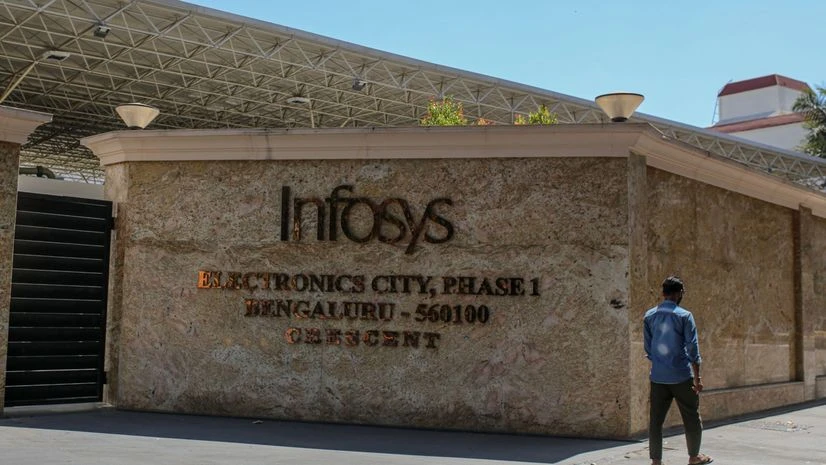By Harshita Swaminathan, Rachel Yeo and Reina Sasaki
Infosys Ltd. and Wipro Ltd. are expected to kick off the Indian earnings season on a somber note as financial services clients kept information technology budgets tight.
Fiscal fourth-quarter revenue at Infosys, the country’s No. 2 IT services company, probably grew modestly. Wipro, India’s fourth-biggest provider, may post lower sales. Accenture Plc lowered its revenue outlook last month, citing a pullback in software spending by Wall Street firms, which are among the Indian companies’ biggest clients.
With discretionary projects from clients getting delayed, cost cuts should support earnings going ahead, according to Nomura analysts Abhishek Bhandari and Krish Beriwal. Comments on budgets for 2024 and the ramp-up of projects will be tracked closely by investors, they said. For Wipro, the recent resignation of Chief Executive Officer Thierry Delaporte brought uncertainty at a time when investors want to see a turnaround.
Taiwan Semiconductor Manufacturing Co. saw quarterly revenue surge the most since 2022 with the AI chip boom. Investors might also be interested in how it’s dealing with this month’s earthquake in Taiwan. Its biggest temblor in 25 years caused minor disruptions for TSMC and its long-term outlook should remain stable with strong demand, Bloomberg Intelligence said. It will also benefit from US plans to award $11.6 billion in grants and loans to build factories.
Highlights to look out for:
More From This Section
Monday: CATL (300750 CH) probably saw first-quarter revenue drop 8.8 per cent, two estimates show, as electric-vehicles demand slows down. Chairman Robin Zeng isn’t worried about overcapacity and intends to boost output of the company’s more technologically advanced products. The battery maker’s plans to build batteries at a Michigan plant owned by Ford Motor Co. bodes well for its long-term market share, BI said.
Thursday: Infosys’ (INFO IN) annual revenue likely grew at the slowest pace since the 2018 fiscal year, consensus shows. Fourth-quarter profit probably edged higher, with salary hikes denting margins. It gets almost a third of revenue from financial services and insurance companies, which have been among the worst-hit verticals for client spending. Investors will look for updates on the InSemi Technology acquisition and the rollout of €1.5 billion ($1.6 billion) deal with Liberty Global, ICICI Securities analysts said.
TSMC (2330 TT) will post strong first-quarter results due to advanced node processes and advanced chip-packaging technology, BI said. The company maintained its full-year revenue guidance of low-to-mid twenties percentage growth following the Taiwan earthquake. US financial support for TSMC to build factories in Arizona exceeded analysts’ expectations. Goldman Sachs said the facilities would likely be used by large US customers including Apple Inc. and Nvidia Corp.
Bajaj Auto’s (BJAUT IN) fiscal-year adjusted net income likely expanded 30 per cent, consensus shows. While it saw favorable volume growth and stable raw material cost, the increasing electric vehicle mix in its portfolio may hold back Ebitda margin expansion, Prabhudas Lilladher said. The firm has been expanding its domestic market share with strong volume performance in exports and surge in EV volumes, Nuvama said.
Friday: Wipro (WPRO IN) will probably see profit shrink for a second straight year. Investors will want to hear incoming CEO Srinivas Pallia’s comments on client spending trends. Pallia, who was previously CEO of part of the Americas business, took over on April 7 after Delaporte quit in the middle of his term. Some analysts said the elevation of an internal candidate meant Wipro’s execution issues may persist, while others said his three decades at the firm bodes well.
Hangzhou Hikvision (002415 CH) said in January that full-year net income would rise almost about 10 per cent. Sales growth in 2024-2025 might moderate to the low teens compared with the pre-pandemic annual pace of 15-30 per cent, BI said. That’s as limitations from China’s property downturn and fiscal challenges faced by local governments might pressure its core surveillance business and public projects.

)
